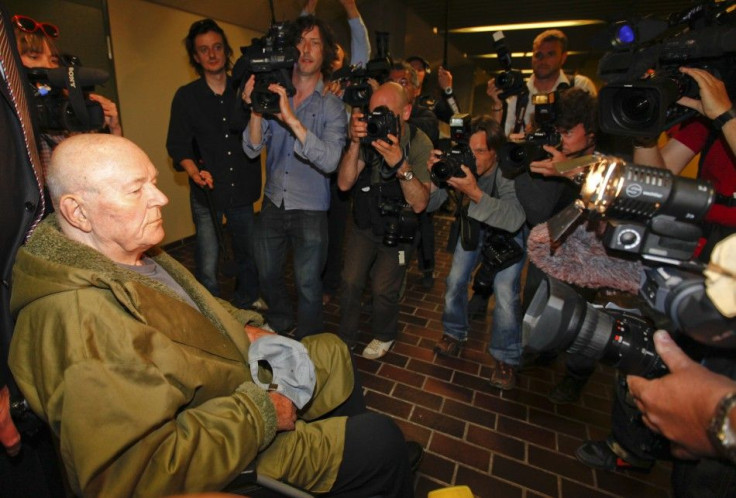Germany Opens New Nazi Investigations: How Many Former Nazis are Still Alive?

Thanks to the conviction of concentration camp prison guard John Demjanjuk last spring, German authorities are re-opening hundreds of investigations of former Nazi soldiers.
The country's special Nazi war-crimes investigators are attempting to name and locate Nazi death camp prison guards so they can be held accountable for their crimes.The Demjanjuk trial last year marked the first time that a former Nazi was convicted with direct evidence that a suspect was involved in a specific murder.
But just how many Nazis are left in Germany?
There are likely under 1,000 former Nazi guards still living somewhere in the world, according to investigators. German authorities will likely look at the guards of the Belzec, Sobibor, Chelmno and Treblinka extermination camps first, along with member of the Einsatzgruppen, a unit of the SS often referred to as a death squad that was responsible for about one million murders between 1939 and 1945.
Of those still alive, the youngest ones are in their eighties, and many are thought to be in old age homes in Germany and abroad.
We're talking about an estimated 4,000 [total camp guards], to round it off, the Simon Wiesenthal Center's Efraim Zuroff told The Associated Press. Even if only two percent of those people are alive, we're talking 80 people -- and let's assume half of them are not medically fit to be brought to justice -- that leaves us with 40 people, so there is incredible potential.
In 1976, German authorities tried Trawniki camp guard Karl Streibel in Hamburg. He was acquitted of charges when judges ruled that he was training prison guards such as Demjanjuk without knowing for what purpose the guards would use their skills, according to The Daily Mail.
Demjanjuk is said to have helped kill 27,900 Jews at the Sobibor extermination camp in occupied Poland. He was found guilty of 28,060 counts of accessory to murder by a court in Munich after 18 months of testimony.
When the 91-year-old first went to trial in 1988 he wasn't even living in Germany. The former guard was extradited from the United States, where he had been living since 1952, to Israel. Demjanjuk was recognized as a guard nicknamed Ivan the Terrible and sentenced to death, but he was eventually set free by an Israeli court over an apparent lack of empirical evidence.
Demjanjuk was again charged in 2001 and, after many legal battles, deported to Germany in 2009. He was again found guilty and this time sentenced to five years in prison, which he didn't have to serve because of his poor health.
The former Sobibor guard will soon be up for appeal, but investigators do not want to wait to see if the conviction is upheld before they start trying more perpetrators.
As our numbers -- those of the victims -- have also rapidly dwindled, this represents the final opportunity to witness justice carried out in our lifetimes, war-crimes prosecutor Kurt Schrimm said, according to The AP. Time is the enemy here.
© Copyright IBTimes 2024. All rights reserved.




















